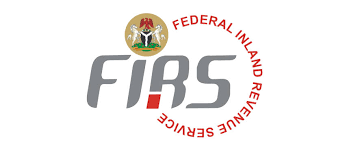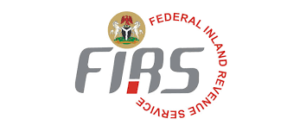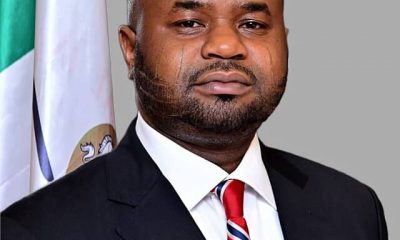Business
FIRS presents road infrastructure tax

FIRS presents road infrastructure tax
FIRS-The Federal Inland Revenue Service is presenting the introduction of Road Infrastructure Tax in Nigeria, to make the informal sector contribute to building a modern society.
The Executive Chairman of FIRS, Muhammad Nami, disclosed this on Thursday while receiving a delegation of the Nigeria Union of Journalists, led by its National President, Chris Isiguzo, in his office, in Abuja.
Nami said the proposed Road Infrastructure tax to be administered by FIRS, will provide government with adequate funding for road construction, rehabilitation, and maintenance, as well as providing the needed security for roads in the country.
He said “One quick and very important intervention required of you is in the area of the Road Infrastructure Funding Scheme that the country needs in order fix our roads and bringing the informal sector to the tax net.”
He noted that in many jurisdictions, road users pay for the use of road infrastructure, adding that this should not be seen as an additional burden on the people because it has the potential of making life better for all.
Speaking further, Nami stated that Nigeria’s economy presently relies heavily on non-oil revenues to discharge its statutory responsibility of paying salaries and providing social amenities to the citizenry.
“Without the tax that you pay, governments at all levels would not be able to fulfil their mandate to the electorates. Tax money also helps to ensure the roads you travel are safe and always in good condition,” he said.
He disclosed that the recent rise in the price of crude oil ordinarily should have impacted positively on the Petroleum Profit Tax payable by oil producing companies. However, it has shown otherwise due to some reasons.
On the challenges facing the service of delivering on its mandate, he said “Crude oil production has been limited by OPEC quota. Nigerian OPEC quota as of July 2021 was about 1.5mbpd as against its crude oil production budget of 1.8mbpd.
“This is a shortfall of 300,000 barrels per day. Our average daily crude oil production is around 1.250mbpd as against the allocated 1.5mbpd OPEC quota which has resulted in a shortfall of almost 250,000 barrels per day mainly caused by crude oil theft and force majeure declared by some of the IOCs.
“The total shortfall to FGN budgeted production is about 550,000 barrel per day.
“Huge losses brought forward and un-recouped capital allowances reported by most of the companies due to production shut in and the fall in oil price in 2020 as a result of the covid-19 pandemic which reduced their revenue. ”
He said with challenges in the oil and gas sector, reforms have been carried out by the agency with visible impact on the economy such as the deployment of technology in tax administration to improve domestic revenue mobilization in view of dwindling oil prices.
Nami added that the service created 10 Value Added Tax, VAT, Regional Coordination Offices across the country to drive collection of VAT.
He said, “We have commenced usage of VAT Form 002A for enrolment and tracking of branch offices of major VAT payers. This will certainly improve our VAT collection and capacity. We achieved 114.66 percent of our VAT collection target in the first half of the year.
“It will interest you to know that the Service collected a total of N4.2trn between January to September, 2021. This feat was achieved as a result of the efficiency and effectiveness of the TaxProMax Solution and intelligence/data we gathered, mined and analyzed in the period under review.
“The service successfully facilitated both the mock and external audits for the ISO 27001:2013 certification of the Exchange of Information centre, to meet international information security management standards.”
Earlier, the NUJ National President, said the visit of the union was part of his resolve to engage critical institutions as a key stakeholder in charting a way forward for the country’s collective good.
Business
Nigeria’s Inflation Drops to 15.10% as NBS Reports Deflationary Trend

Nigeria’s headline inflation rate declined to 15.10 per cent in January 2026, marking a significant drop from 27.61 per cent recorded in January 2025, according to the latest Consumer Price Index (CPI) report released by the National Bureau of Statistics.
The report also showed that month-on-month inflation recorded a deflationary trend of –2.88 per cent, representing a 3.42 percentage-point decrease compared to December 2025. Analysts say the development signals easing price pressures across key sectors of the economy.
Food inflation stood at 8.89 per cent year-on-year, down from 29.63 per cent in January 2025. On a month-on-month basis, food prices declined by 6.02 per cent, reflecting lower costs in several staple commodities.
The data suggests a sustained downward trajectory in inflation over the past 12 months, pointing to improving macroeconomic stability.
The administration of President Bola Ahmed Tinubu has consistently attributed recent economic adjustments to ongoing fiscal and monetary reforms aimed at stabilising prices, boosting agricultural output, and strengthening domestic supply chains.
Economic analysts note that while the latest figures indicate progress, sustaining the downward trend will depend on continued policy discipline, exchange rate stability, and improvements in food production and distribution.
The January report provides one of the clearest indications yet that inflationary pressures, which surged in early 2025, may be moderating.
Bank
Alpha Morgan to Host 19th Economic Review Webinar

Alpha Morgan to Host 19th Economic Review Webinar
In an economy shaped by constant shifts, the edge often belongs to those with the right information.
On Wednesday, February 25, 2026, Alpha Morgan Bank will host the 19th edition of its Economic Review Webinar, a high-level thought leadership session designed to equip businesses, investors, and individuals with timely financial and economic insight.
The session, which will hold live on Zoom at 10:00am WAT and will feature economist Bismarck Rewane, who will examine the key signals influencing Nigeria’s economic direction in 2026, including policy trends, market movements, and global developments shaping the local landscape.
With a consistent track record of delivering clarity in uncertain times, the Alpha Morgan Economic Review continues to provide practical context for decision-making in a dynamic environment.
Registration for the 19th Alpha Morgan Economic Review is free and can be completed via https://bit.ly/registeramerseries19
It is a bi-monthly platform that is open to the public and is held virtually.
Visit www.alphamorganbank to know more.
Business
GTBank Launches Quick Airtime Loan at 2.95%

GTBank Launches Quick Airtime Loan at 2.95%
Guaranty Trust Bank Ltd (GTBank), the flagship banking franchise of GTCO Plc, Africa’s leading financial services group, today announced the launch of Quick Airtime Loan, an innovative digital solution that gives customers instant access to airtime when they run out of call credit and have limited funds in their bank accounts, ensuring customers can stay connected when it matters most.
In today’s always-on world, running out of airtime is more than a minor inconvenience. It can mean missed opportunities, disrupted plans, and lost connections, often at the very moment when funds are tight, and options are limited. Quick Airtime Loan was created to solve this problem, offering customers instant access to airtime on credit, directly from their bank. With Quick Airtime Loan, eligible GTBank customers can access from ₦100 and up to ₦10,000 by dialing *737*90#. Available across all major mobile networks in Nigeria, the service will soon expand to include data loans, further strengthening its proposition as a reliable on-demand platform.
For years, the airtime credit market has been dominated by Telcos, where charges for this service are at 15%. GTBank is now changing the narrative by offering a customer-centric, bank-led digital alternative priced at 2.95%. Built on transparency, convenience and affordability, Quick Airtime Loan has the potential to broaden access to airtime, deliver meaningful cost savings for millions of Nigerians, and redefine how financial services show up in everyday life, not just in banking moments.
Commenting on the product launch, Miriam Olusanya, Managing Director of Guaranty Trust Bank Ltd, said: “Quick Airtime Loan reflects GTBank’s continued focus on delivering digital solutions that are relevant, accessible, and built around real customer needs. The solution underscores the power of a connected financial ecosystem, combining GTBank’s digital reach and lending expertise with the capabilities of HabariPay to deliver a smooth, end-to-end experience. By leveraging unique strengths across the Group, we are able to accelerate innovation, strengthen execution, and deliver a more integrated customer experience across all our service channels.”
Importantly, Quick Airtime Loan highlights GTCO’s evolution as a fully diversified financial services group. Leveraging HabariPay’s Squad, the solution reinforces the Group’s ecosystem proposition by bringing together banking, payment technology, and digital channels to deliver intuitive, one-stop experiences for customers.
With this new product launch, Guaranty Trust Bank is extending its legacy of pioneering digital-first solutions that have redefined customer access to financial services across the industry, building on the proven strength of its widely adopted QuickCredit offering and the convenience of the Bank’s iconic *737# USSD Banking platform.
About Guaranty Trust Bank
Guaranty Trust Bank (GTBank) is the flagship banking franchise of GTCO Plc, a leading financial services group with a strong presence across Africa and the United Kingdom. The Bank is widely recognized for its leadership in digital banking, customer experience, and innovative financial solutions that deliver value to individuals, businesses, and communities.
About HabariPay
HabariPay is the payments fintech subsidiary of GTCO Plc, focused on enabling fast, secure, and accessible digital payments for individuals and businesses. By integrating payments and digital technology, HabariPay supports innovative services that make everyday financial interactions simpler and more seamless.
Enquiries:
GTCO
Group Corporate Communication
[email protected]
+234-1-2715227
www.gtcoplc.com
-

 celebrity radar - gossips6 months ago
celebrity radar - gossips6 months agoWhy Babangida’s Hilltop Home Became Nigeria’s Political “Mecca”
-

 society6 months ago
society6 months agoPower is a Loan, Not a Possession: The Sacred Duty of Planting People
-

 society5 months ago
society5 months agoReligion: Africa’s Oldest Weapon of Enslavement and the Forgotten Truth
-

 news6 months ago
news6 months agoTHE APPOINTMENT OF WASIU AYINDE BY THE FEDERAL GOVERNMENT AS AN AMBASSADOR SOUNDS EMBARRASSING








